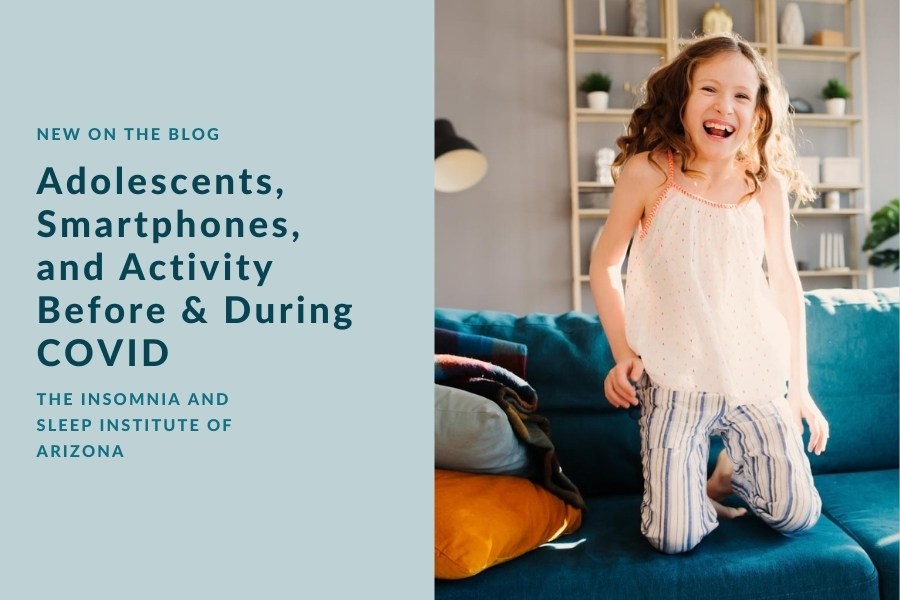A recent article in the International Journal of School Health analyzed smartphone usage, physical activity, quality of life, and sleep patterns in adolescents before and during “COVID confinement.” Unsurprisingly, there were behavioral changes noted among youth during the pandemic, and researchers wanted to know how quarantine may have affected the mental and physical health of adolescents—particularly when it came to sleep. At The Insomnia and Sleep Institute of Arizona, we also found an increase in parents reporting sleep problems for both themselves and their children in the past 2.5 years. COVID isn’t “over” yet, but as we return to a life that somewhat resembles pre-COVID, the effects of a pandemic are still starting to unfold.
The study included a descriptive-comparative design with 384 youth aged 16 – 18 years (juniors and seniors in high school). The participants attended school in Iran in 2020, and the researchers analyzed their activities via standard questionnaires. Gender differences were considered as were self-report activity before and during COVID. Girls reported a “significantly higher” use of smartphones both before and during quarantine, but that was the only gender difference found. When it came to sleep disorders and issues, they spiked during COVID in the whole group.
Sleep and Health Amidst a Pandemic
Sleep pattern was one of the primary topics in the study, in which participants were aware their responses were anonymous. Researchers used the Pittsburgh Sleep Quality Index, which includes 19 questions related to sleep habits. The component scores are comprised of subjective sleep quality, sleep duration, sleep disturbance, use of sleep medication, daytime dysfunction, sleep latency, and sleep efficiency. Participants rate themselves from 0 (no difficulty) to 3 (severe difficulty). The component scores are then tallied to create a “global range” of 0 – 21. When someone reaches a score of 5+, the presence of a sleep disorder is recorded. The higher the number, the worse the sleep quality.
To ensure the best accuracy, researchers asked nine psychology experts to examine the validity of the scores. The results showed that all participants were “significantly and negatively affected by the pandemic in global sleep quality” (as well as other measures of quality of life). This was true of every part of the components, and there were no gender differences in any of the components before or during the pandemic. The researchers conclude that “confinement related to the COVID-19 pandemic increased smartphone usage, disturbed sleep quality, and decreased health-related quality of life and physical activity level of adolescents.” While they remark that these shifts are “understandable,” citing increased fear, stress, social distancing, and school closures, this does not mean that they should be ignored—or that the effects are not treatable.
Is Your Child Still Struggling with Sleep Issues Related to COVID?
We are only two years into the pandemic and many people of all ages still struggle with sleep problems related to such a dramatic life change. If you or your child is having problems with sleep, the sooner you get help the sooner you can return to enjoying healthy sleep patterns. There has been an increase in many sleep disorders, particularly insomnia, in recent years. The most effective and safest treatments for insomnia include cognitive behavioral therapy (CBT-I) and TMS. Both are available at our office.
According to researchers, the findings indicate that adolescents—both in the last two years and now—have a “lower quality of sleep.” They add that there has also been an uptick in the use of smartphones before bed, which is a well-known contributor to sleep disorders like insomnia. The researchers urge the control of smartphones and other electronic devices before bed as a means of improving sleep hygiene and, in turn, sleep quality. However, this is just one of many possible means of improving sleep for those of all ages. Get the sleep help you need today by contacting The Insomnia and Sleep Institute. Start a chat, call the office, or complete the online contact form today.





